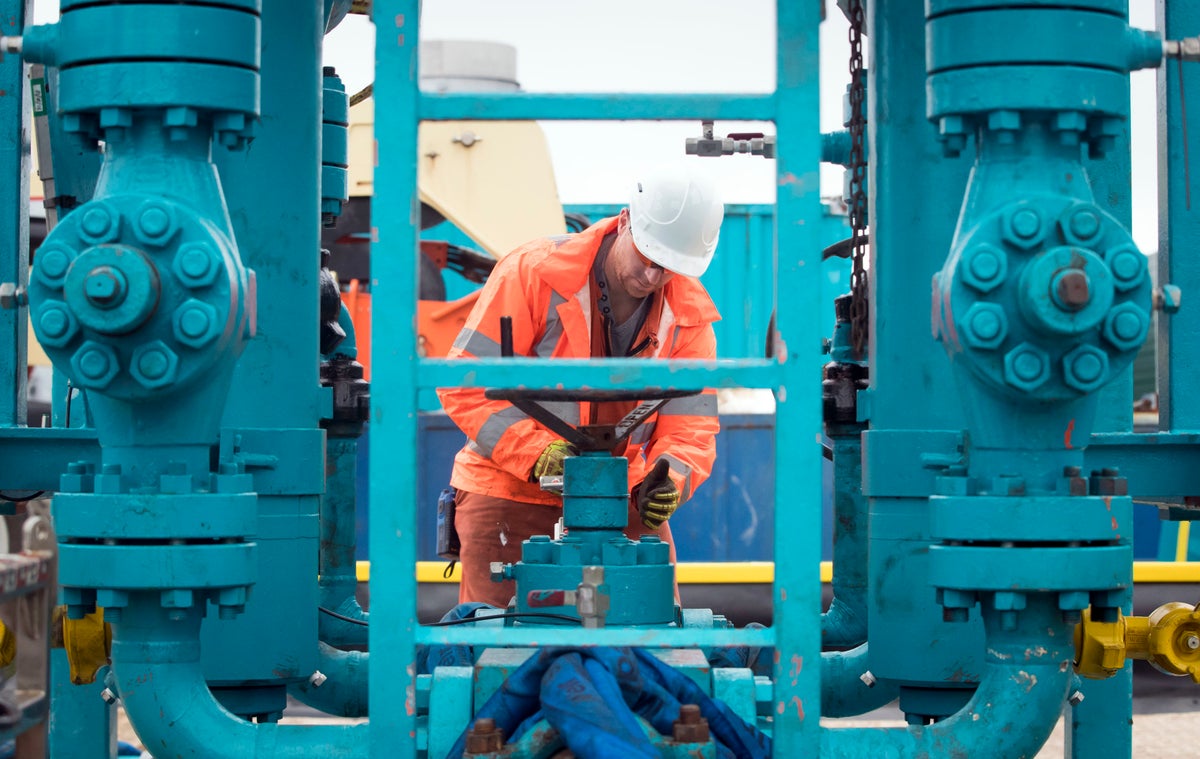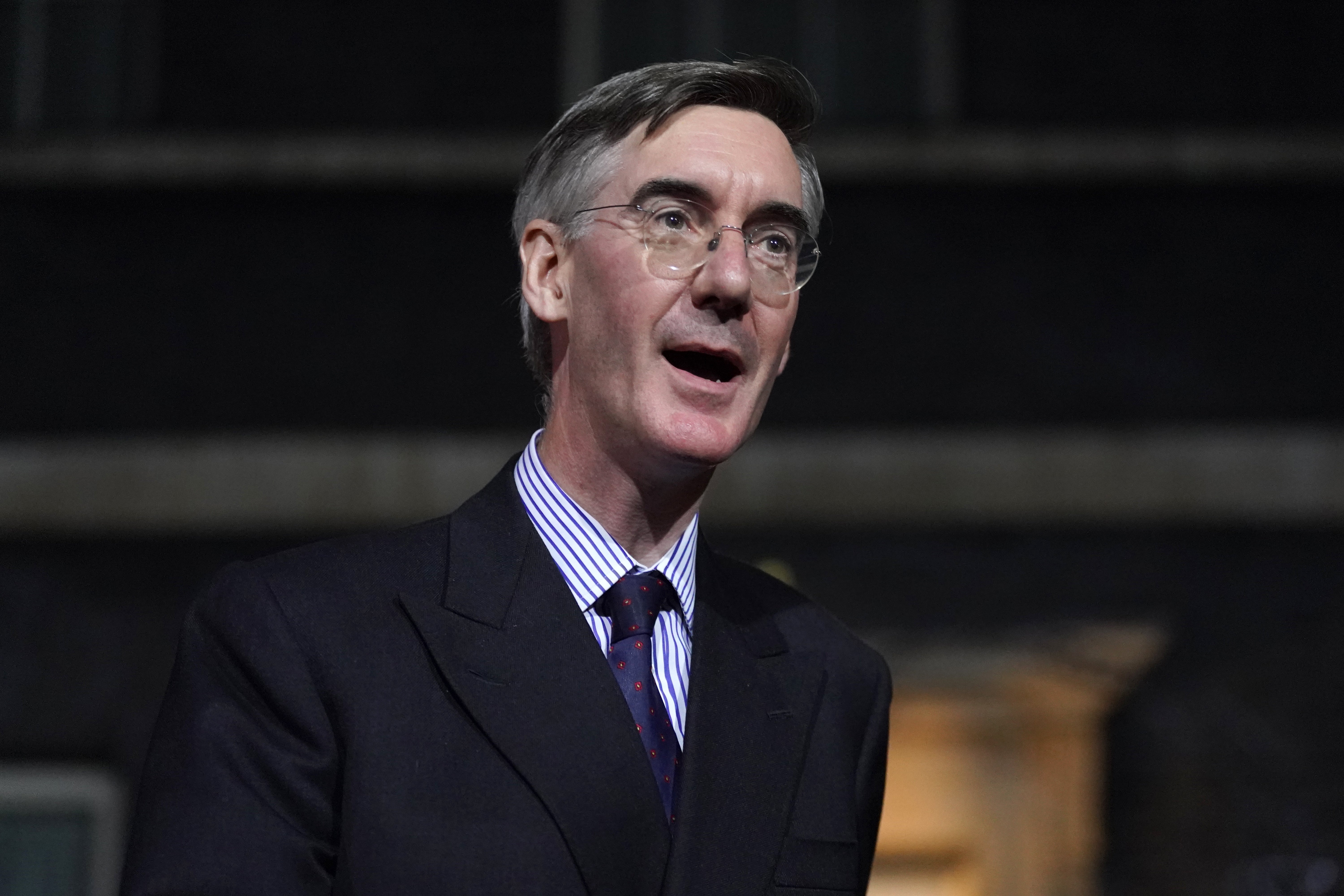
The Prime Minister stressed the energy crisis is the “number one issue we face” as she defended potentially breaching a Tory manifesto pledge to lift the fracking ban.
Liz Truss insisted she will not authorise “anything that carries a risk” but the Government is yet to produce evidence showing hydraulic shale gas extraction is safe.
The 2019 Conservative manifesto pledged not to lift England’s moratorium unless fracking was scientifically proven to be safe amid concerns over earthquakes.
A British Geological Survey review into its safety was commissioned, but its publication was delayed by the Queen’s death.
Officials have suggested it will show more drilling is required to establish data on the impact of extraction on earthquakes.
The document is expected to be published on Thursday as the Government sets out how it will end the fracking ban.
Ms Truss stressed the need to find new energy sources amid a crisis worsened by Vladimir Putin’s war in Ukraine when asked if she believes fracking is safe, or whether she is breaking a manifesto pledge.
We will not be going ahead with anything that carries a risk but I’m clear that energy security is vital— Liz Truss
“The context we’re talking about here is we don’t have enough domestic energy supplies,” she told reporters travelling with her during a UN summit in New York.
“Fracking is a part of the energy mix – we should be looking at all options. No option should be off the table to improve our energy security because that’s the number one issue we face.
“We will not be going ahead with anything that carries a risk but I’m clear that energy security is vital.”
She also stressed that the Government will only authorise fracking in areas where there is local support. It is not yet clear what incentive ministers will offer local communities.
But on BBC Newsnight on Wednesday evening, Jacob Rees-Mogg appeared to indicate that the Government would be looking at the current permitted levels of seismic activity at fracking sites.

The Energy Secretary told the programme: “The seismic limits will be reviewed to see a proportionate level. 0.5 on the Richter scale, which is only noticeable with sophisticated machinery, it is quite right that fracking would not take place, that level is too low.
“But I can’t confirm a new level, because that is being looked at.”
Environmental groups hit out at the move to lift the ban, with Greenpeace energy security campaigner Philip Evans warning fracking was “a dud”.
“As energy experts keep telling ministers, drilling for more fossil fuels – whether it’s fracking or North Sea oil and gas – will not lower bills, make us less dependent on volatile fossil fuel markets or cut our carbon emissions.
“And fracking may not even work at all. Even when the Government went ‘all out for shale’, the frackers produced no energy for the UK but managed to create two holes in a muddy field, traffic, noise and a colossal amount of controversy,” he said.
Mr Evans urged the Prime Minister to look at the “tried and tested” solutions to lower bills and boost energy security – renewables and upgrading energy efficiency in homes.
Friends of the Earth campaigner Danny Gross said fracking was the most unpopular and least effective way of generating energy in the UK, was opposed by communities wherever it was tried, and any attempt to water down the rules that safeguarded against the process would “only fuel its unpopularity”.
“If Liz Truss wants to build a strong economy for the future, she should champion home insulation and the UK’s plentiful renewable resources. They are cheap, quick to develop and are popular with the public,” he said.
Analysis by Friends of the Earth suggested 91 of England’s 333 local authorities have oil and gas exploration licences.
Some 143 parliamentary constituencies, mainly in northern England and the Midlands have licences which could potentially allow firms to examine whether there are gas reserves that could be exploited.
Labour’s Ed Miliband accused the Government of breaking “yet another manifesto promise”, calling fracking a “dangerous fantasy”.
“We now have an energy policy run for big fossil fuel interests not for the British people. No to the windfall tax and yes to dangerous, unsafe fracking,” Labour’s shadow climate secretary said.







